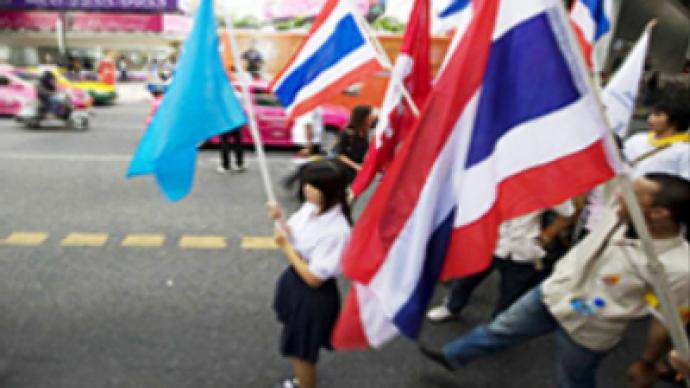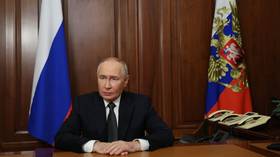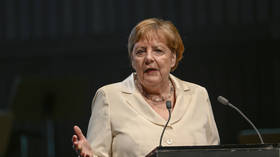What’s going on in Thailand?

Reports from Thailand are getting more alarming by the day. Certainly, the situation in the Land of Smiles is not being as closely watched by the world community as the aftermath of the Georgian attack on South Ossetia.
However, Thailand, being one of the fastest growing economies in Asia, as well as a preferred holiday destination for millions from all around the world, cannot avoid media attention when it finds itself in trouble. Especially when for a brief time hundreds of tourists are stranded at Phuket Airport because of the protests.
First of all, it is important to say that the situation is normalising, this is already evident. The blockade of the airports in the south is over, the great majority of the stranded tourists are safely home, and the leaders of the People’s Alliance for Democracy are making their first hints at the possibility of a dialogue with the government.
Some commentators analysing the current trouble in Thailand put it in the same package with the July-August events in Malaysia and are already jumping to the conclusion that there is a growing gap between the rapidly advancing economies of the south-east Asian nations and their politics, stuck in previous ages.
In my view it’s quite a long jump. However, there is some sense to it, especially in the case of Thailand.
Let’s have a look at the players in the conflict. The People’s Alliance for Democracy is a pro-Royalist mass organisation in a completely Royalist environment. That’s the main reason why the government hasn’t ordered a crackdown on the thousands of PAD protesters who have in five days turned the Government House compound into a cross between a mud field and a garbage dump. Latest reports say all the fish in the nearby canals are dead. The PAD is led by several people, but the two key figures are Sondhi Limthongkul, a media magnate severely battered by the Asian crisis of 1998 and a famous TV host ever since, and Major-General Chamlong Srimuang who knows perfectly well that he is repeating his own actions of May 1992 – actions which led all the way to the massive shoot-up of his unarmed followers by the army, and subsequently to his prostrating himself before the King in a televised plea for Royal forgiveness. Now, 16 years later, he is again at the head of a crowd meaning no good to whoever opposes it.
The government is headed by Prime Minister Samak Sundharavej. He is being dismissed by some American and European columnists as an “ex-presenter of a TV cooking show.” Nothing could be more wrong. Mr Sundharavej is a veteran politician who likes to cook and share his skills with others. He is totally conservative and absolutely loyal to the Monarchy. A radio host in the seventies, his was one of the fiercest anti-Communist voices heard throughout the country.
Other players include Royal Thai Police, the armed forces and the United Front against Dictatorship. The Police are loyal to the Monarchy and Constitution.
The Army, Air Force and Navy are pillars of the throne and the rule of law, and have been for eons.
Therefore there is no real ideological antagonism among any of the sides involved in the conflict.
The reason why the PAD is against the government is their belief that the Cabinet is not independent regarding its plans and actions, and that Prime Minister Samak walks around with ex-Prime Minister Taksin Shinavat sitting on his shoulder and whispering orders in his ear. Mr. Samak flatly denies this.
So, is all that turmoil happening because of one man, Taksin Shinavat? It does seem that way.
And it most probably is that way – because Mr. Taksin is not just a man with a lot of money any more. All the criminal cases against him put aside – and they are not for us but for the courts to decide anyway – he has become a symbol of sorts for those who benefited from his stint as Prime Minister, namely the 60% or so of the country’s population that live in rural areas. Even exporting 500,000 automobiles a year and competing for first place in the world in computer motherboard production, Thailand remains an agricultural society. Rice, not computers, is politics in Thailand. Those who grow rice did benefit from Taksin Shinavat’s “populist” schemes: or why else would they be ready to vote for whoever he tells them to vote for – even today, two years since his enforced removal from power?
The amazing thing about the current crisis is that if the demands of the PAD are met and Samak steps down and/or dissolves the parliament, the next election will inevitably bring the same group of people to power: the friends and colleagues of ex-Prime Minister Taksin Shinavat. That is the way of democracy: the majority vote wins. The PAD is not the parliamentary opposition, as the United Front against Dictatorship is not a political party in the ruling coalition. They both are temporary organisations existing just for the duration of an active protest campaign.
The parliamentary opposition, the Democrat party, the oldest political party in Thailand with its roots in the U.S.-controlled anti-Japanese resistance during WWII, is totally out of shape to win the election, and will be in that condition for quite a while longer.
It means that if one of the friends of the exiled ex-Prime Minister, for instance, Samak Sundharavej, wants to run for Parliament again, he can run. And trust me, he can win – actually, he will win. So what? Everything starts over again? Take Two? And maybe Three and Four?
That is possible too. What I like very much is that so far all the sides in the controversy have abstained from any actions that could have as much as looked undemocratic.
It only proves that Thailand’s democracy, one of the oldest in the region, a democracy that has built itself up from scratch, without direct colonial influence, and then borrowed the best from every foreign democratic system it encountered – and as different as it is from the American or Russian version – is totally capable of taking care of itself, thank you.
And it will with minimum harm to its own people – and even less to foreigners who enjoy holidays or permanent residence in Thailand.
Evgeny Belenkiy, RT












